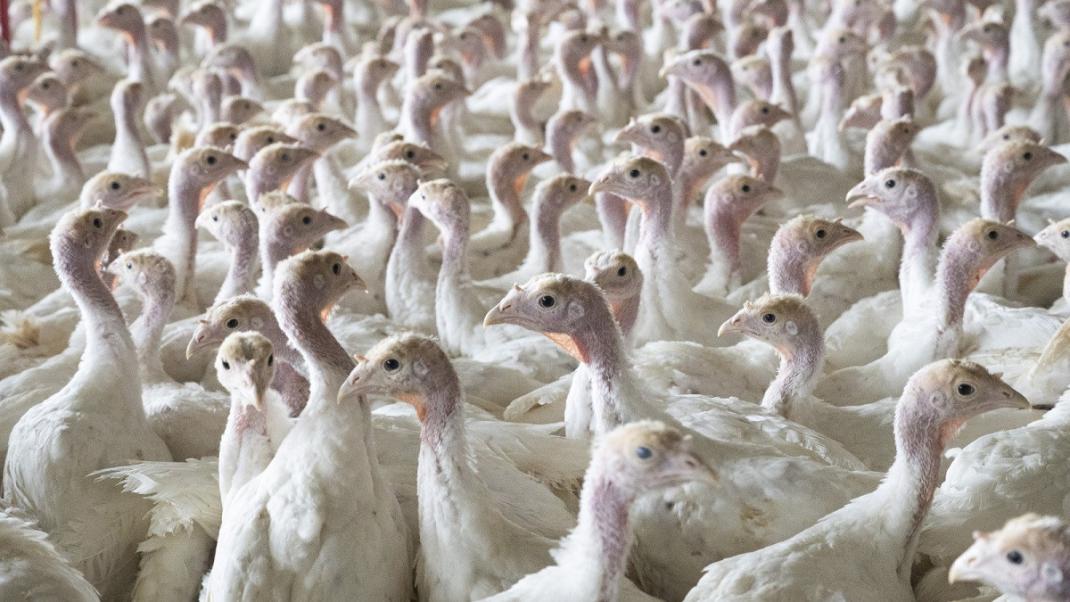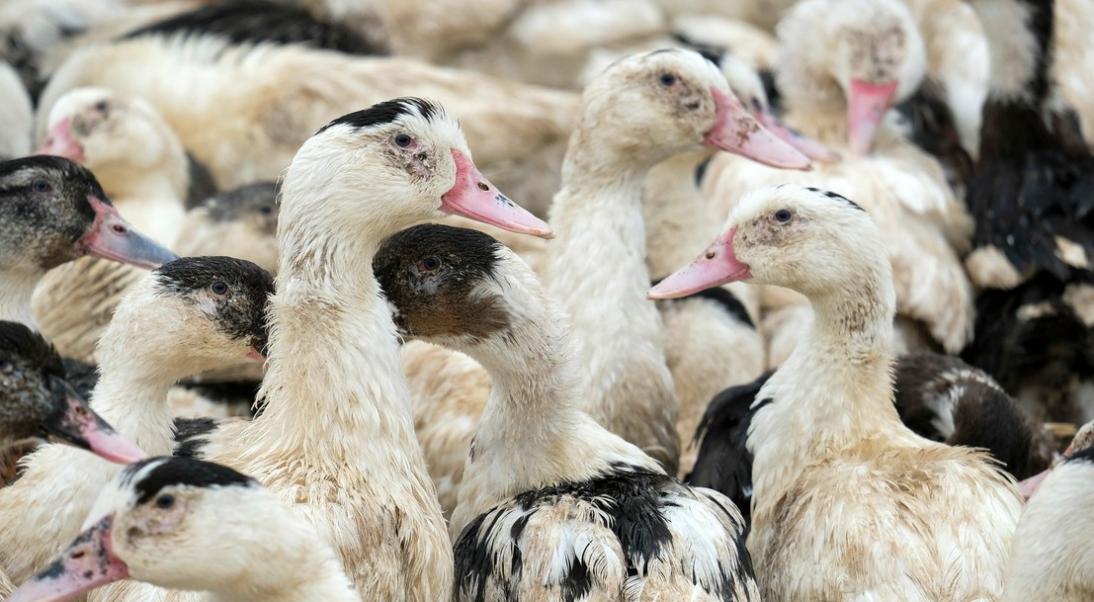
Thierry Degen/Terra
November 28, 2023 Press release
Avian influenza: Faced with the observed increase in cases of highly pathogenic avian influenza (HPAI) in wildlife, with a first outbreak detected in a French farm, France is raising its risk level
The decree published on November 28 in the Official Journal raises the risk level from “negligible” to “moderate” across the entire metropolitan territory. It has the effect of strengthening prevention and biosecurity measures for the breeding sectors but also for hunters. This measure is taken as an outbreak in breeding has just been recorded in France in Morbihan, the first case of autumn 2023.
For several weeks, Europe has recorded a dynamic spread of the highly pathogenic avian influenza virus (HPAI) in migratory wild fauna (greylag geese and barnacles in particular) but also in farms in Northern Europe (Germany, Denmark, Netherlands) and central Europe, particularly in Hungary.
These detections concern a certain number of countries (Denmark, Netherlands, Germany in particular) located upstream of the migration routes which cross France. Germany, Sweden and Austria have identified the virus in different species of migratory birds.
The infection pressure linked to migratory wildlife will therefore gradually increase in France. 4 common cranes have already been confirmed infected with HPAI in the Meuse (Lake Madine) and in the Camargue in recent days, as well as a herring gull in Morbihan. On November 27, close to the gull found infected, a turkey farm was declared an HPAI outbreak; all measures are being taken to manage this first outbreak in breeding in the fall of 2023.
Visit the ESA platform for more information on the situation in Europe.
Faced with this situation, the Ministry of Agriculture and Food Sovereignty has taken the decision to raise the risk level from “negligible” to “moderate” across the entire metropolitan territory: ministerial decree .
This decision leads to the immediate implementation of reinforced prevention and biosecurity measures by both individuals and professional actors, including:
All applicable measures are described in the ministerial decree of 09/25/2023 .
These reinforced measures complement the compulsory vaccination campaign launched in France since October 1 for commercial farms keeping more than 250 ducks. Surveillance, biosecurity and vaccination are complementary pillars of HPAI prevention.
[1] ZRP : particular risk zone in which natural conditions increase the risk of contamination of farms by wildlife.
[2] ZRD : area at risk of diffusion with a high density of poultry farms
https://agriculture.gouv.fr/influenz...pathogene-iahp
See also:
France - Avian flu: an outbreak identified in a Morbihan farm, the “first case of the fall"

Thierry Degen/Terra
November 28, 2023 Press release
Avian influenza: Faced with the observed increase in cases of highly pathogenic avian influenza (HPAI) in wildlife, with a first outbreak detected in a French farm, France is raising its risk level
The decree published on November 28 in the Official Journal raises the risk level from “negligible” to “moderate” across the entire metropolitan territory. It has the effect of strengthening prevention and biosecurity measures for the breeding sectors but also for hunters. This measure is taken as an outbreak in breeding has just been recorded in France in Morbihan, the first case of autumn 2023.
For several weeks, Europe has recorded a dynamic spread of the highly pathogenic avian influenza virus (HPAI) in migratory wild fauna (greylag geese and barnacles in particular) but also in farms in Northern Europe (Germany, Denmark, Netherlands) and central Europe, particularly in Hungary.
These detections concern a certain number of countries (Denmark, Netherlands, Germany in particular) located upstream of the migration routes which cross France. Germany, Sweden and Austria have identified the virus in different species of migratory birds.
The infection pressure linked to migratory wildlife will therefore gradually increase in France. 4 common cranes have already been confirmed infected with HPAI in the Meuse (Lake Madine) and in the Camargue in recent days, as well as a herring gull in Morbihan. On November 27, close to the gull found infected, a turkey farm was declared an HPAI outbreak; all measures are being taken to manage this first outbreak in breeding in the fall of 2023.
Visit the ESA platform for more information on the situation in Europe.
Faced with this situation, the Ministry of Agriculture and Food Sovereignty has taken the decision to raise the risk level from “negligible” to “moderate” across the entire metropolitan territory: ministerial decree .
This decision leads to the immediate implementation of reinforced prevention and biosecurity measures by both individuals and professional actors, including:
- Shelter for all poultry in areas at particular risk ( ZRP ) [1]
- Sheltering of web-footed animals less than 42 days old in zones at risk of diffusion ( ZRD ) [2] from breeding by wild fauna.
- Covering vehicles transporting waterflies
- Restrictions on the transport and use of decoy birds (hunting)
- Restrictions on gatherings of poultry and captive birds.
All applicable measures are described in the ministerial decree of 09/25/2023 .
These reinforced measures complement the compulsory vaccination campaign launched in France since October 1 for commercial farms keeping more than 250 ducks. Surveillance, biosecurity and vaccination are complementary pillars of HPAI prevention.
[1] ZRP : particular risk zone in which natural conditions increase the risk of contamination of farms by wildlife.
[2] ZRD : area at risk of diffusion with a high density of poultry farms
https://agriculture.gouv.fr/influenz...pathogene-iahp
See also:
France - Avian flu: an outbreak identified in a Morbihan farm, the “first case of the fall"


Comment